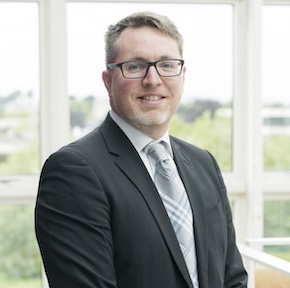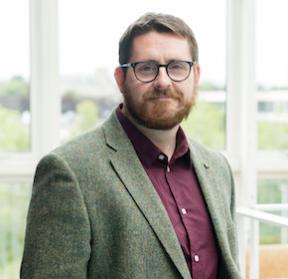Quantum Machine Learning is a subject that has to navigate the huge expectations of its parent disciplines. Today, there are many applications of quantum machine learning in the literature, with various claims over their performance vs. more classical machine learning approaches. Yet, with quantum technology advancing at a tremendous speed, there is a need for AI researchers to understand what this new family of machine learning methods can, and cannot do. This tutorial seeks to illustrate, with a high emphasis on practical examples using the Qiskit framework, what quantum machine learning has to offer, and give an introduction to the general process of how to train simple quantum machine learning models.
The tutorial will comprise the following subject matter:
- Gentle introduction of quantum computing and its formal foundations
- Representing, and handling data on a Quantum Computer
- Techniques for preprocessing, and transforming tabular data QML methods
- Supervised training of QML models, and performing inference
- Characterizing Performance in ML vs. QML
- Discuss current challenges and research directions to give an outlook on where participants could contribute to this emerging area of research
Specifically, we will focus on the family of supervised QML methods that leverage variational techniques. In the literature, this family of methods is often referred to as Quantum Neural Networks (QNNs).
After an introduction to the general domain of quantum computing, the tutorial will guide its participants through annotated Jupyter notebooks that capture:
- Implementing a "dumb" rule-based model that acts as a classifier (of sorts) on the Titanic dataset. This will illustrate how to encode the features Gender and Age for a quantum computer, and implement a simple quantum program to predict ``Survived'' (true) if the passenger is female and/or under 18, and false otherwise. This will highlight basic fundamental concepts of constructing and executing a quantum program with a standard introductory-level machine learning dataset.
- We will then progress to training a QNN on the same dataset and discuss different data preparation strategies, and quantum architecture decisions that influence model training and performance.
- Finally, we will discuss how to incorporate noise (i.e. NISQ errors), and (time and presentation environment permitting) how to deploy our model to a cloud-connected quantum device for inference on a real quantum computer. This might need to be a pre-baked demo by the presenters as it can be hard to predict device availability (specifically queue times) over the Cloud.
This structure would allow participants to then progress at their own pace onto more advanced topics and tutorials available on the web. As such, our objective is to get them started, and have a little confidence in managing their own learning into more advanced concepts and scenarios.
The tutorial resources can be found at the following repository: (opens in a new window)LINK
((opens in a new window)https://github.com/caton-simon/ECAI2025)
Simon Caton
 |
University College Dublin, School of Computer Science Simon received the B.Sc. (Hons.) degree in computer science, in 2005, and the Ph.D. degree in computer science, in 2010. He worked as Postdoctoral Researcher at the Karlsruhe Institute of Technology, Germany, from 2010 to 2014, and as a Lecturer of Data Analytics at the National College of Ireland between 2014 and 2019. He is currently an Assistant Professor with the School of Computer Science at University College Dublin, and Steering Committee Member for the UCD Centre for Quantum Engineering, Science, and Technology (C-QuEST). His research focuses on the applications of machine learning with and for quantum computing, and parallel and distributed computing. |
Steve Campbell
 |
University College Dublin, School of Physics Steve received his MSci. (Hons.) degree in Mathematics in 2008, and his Ph.D. degree in Theoretical Physics in 2011 both from Queen's University Belfast. He worked as Postdoctoral Researcher at University College Cork, the Okinawa Institute of Science and Technology, and Queen's University Belfast. He held an independent research fellowship from the INFN-Sezione di Milano from 2016 to 2018, he was awarded a Science Foundation Ireland Starting Investigator Grant in 2019, and a Humboldt Research Fellowship for Experienced Researchers in 2023. He is currently an Assistant Professor with the School of Physics at University College Dublin and Steering Committee Member for the UCD Centre for Quantum Engineering, Science, and Technology (C-QuEST). His research focuses on the role which fundamental bounds, such as the quantum speed limit, play in characterising and designing thermodynamically efficient control protocols for complex quantum systems. |